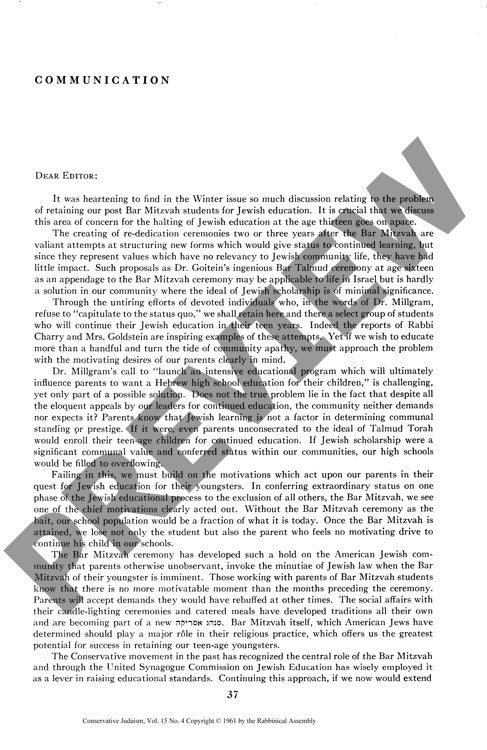Communication
Couldn't load pickup availability
This communication examines the persistent challenge of retaining Jewish students in religious education beyond their Bar Mitzvah at age thirteen. The author employs analytical discourse to critique existing solutions, including re-dedication ceremonies and supplementary programs like Dr. Goitein's Bar Talmud ceremony, arguing these approaches lack relevance to contemporary American Jewish community values and have demonstrated minimal impact. The methodology involves examining parental motivations and community dynamics that drive educational participation, particularly the central role of the Bar Mitzvah ceremony as a primary motivating factor. The analysis reveals that Jewish scholarship holds insufficient communal status to incentivize continued education, while the Bar Mitzvah ceremony possesses extraordinary influence over otherwise unobservant families. The study proposes extending the Bar Mitzvah ceremony to age fifteen, creating a probationary period from ages thirteen to fifteen during which students would continue formal education while participating in religious practices. This approach is supported by Talmudic precedent, noting that the concept of Bar Mitzvah primarily denoted legal rather than religious status, with variations in celebration age across different Jewish communities. The author concludes that this innovation would automatically retain students during crucial adolescent years, restore dignity to the ceremony, and provide a practical solution grounded in existing parental motivations rather than attempting to transform fundamental community values.

More Information
-
Physical Description
-
Publication Information
Published 1961
ISBN
-
Publication Credits
Philip Arian

